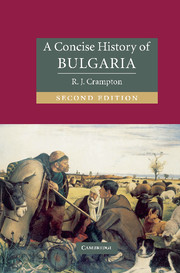A Concise History of Belgium
The small and densely populated nation of Belgium has played an important role in the history of Europe and other continents, especially Africa. It was a pioneering force in industry, trade, and finance during the Middle Ages, through early modern times and into the nineteenth and twentieth centuries. It introduced innovative political regimes and played a leading role in the creative arts. Yet this rich past is not widely known. This introductory history offers an accessible and rigorous overview of this small but important West-European country, synthesizing Belgium's main economic, social, political, and cultural developments from pre-Roman times until today. Today, this nation-state, born in 1830, is well-known for the rivalries between its two main language communities, and as a result is often considered a fragile or even an artificial political construct. This systematic chronological analysis of both present-day Belgium and the polities that preceded it throws fresh light on this controversial issue and demonstrates Belgium's enduring importance and influence.
- Gives a complete overview of Belgian history, from ancient times to the present
- Explores a wide range of aspects of Belgian history, including economic, social, political, and cultural developments
- Offers an interpretative framework of Belgium's history while also remaining fully accessible to a general readership
Reviews & endorsements
'A remarkable feat of synthesis. This volume provides an excellent modern history of the territories in north-west Europe which, having experienced many different forms of rule - local and imperial, religious and secular - were brought together as the nation and state of Belgium after 1830.' Martin Conway, University of Oxford
'Ranging from the Roman Empire to the European Union, De Peuter and Vanthemsche's richly detailed history provides a panoramic view of the evolution of the country that Stefan Zweig called the 'crossroads of Europe.' Engaged with contemporary debates on European and national Belgian identity, this is a masterpiece of historical synthesis.' Carl J. Strikwerda, The College of William and Mary in Virginia
'… not only a synthesis relevant for the historical scholarship, but also an useful tool for any researcher who wants to find more about the European history in different periods of time.' Iuliu-Marius Morariu, Astra Salvensis
Product details
March 2023Adobe eBook Reader
9781009327275
0 pages
This ISBN is for an eBook version which is distributed on our behalf by a third party.
Table of Contents
- 1. Earliest times – From prehistory to the end of the Roman Period
- 2. The era of the Frankish kingdoms (fifth–tenth century)
- 3. The origins of the medieval principalities (tenth–fourteenth century)
- 4. Unifying the Netherlands: The Burgundy – Habsburg period (1384–1555)
- 5. The Spanish Netherlands (1555-ca. 1700)
- 6. The Austrian Netherlands (ca. 1700–1780)
- 7. The formation of a new nation-state (1780s–1830)
- 8. The consolidation of a Bourgeois regime (1831–1880s)
- 9. The Belgian nation-state at its height (1880s–1945)
- 10. The metamorphoses of a nation-state (from 1945 to the present day)
- Index.








